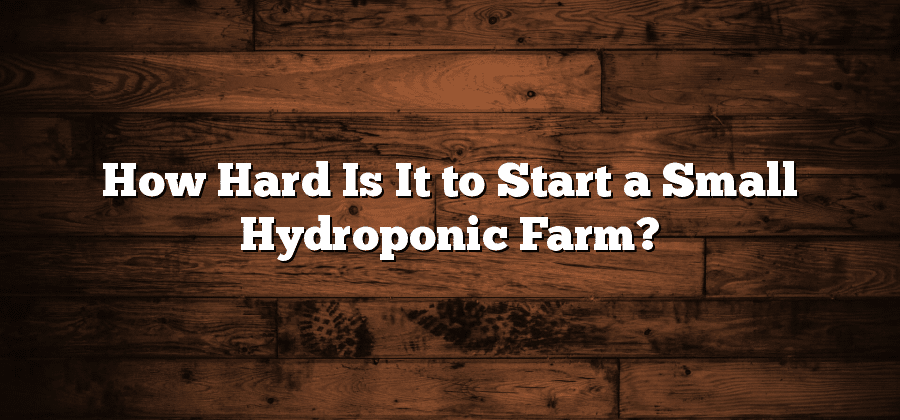Researching hydroponic farming methods
Hydroponic farming is a modern and efficient method of growing plants without soil, utilizing a nutrient-rich water solution instead. This method offers several advantages over traditional soil-based farming, including increased crop yield and reduced water and fertilizer usage. Researching hydroponic farming methods is essential in order to understand the various techniques and systems available and choose the most suitable approach for your needs.
There are several key aspects to consider when delving into hydroponic farming research. Firstly, it is important to familiarize yourself with the different types of hydroponic systems, such as nutrient film technique (NFT), deep water culture (DWC), and aeroponics. Each system has its own set of advantages and disadvantages, so gaining a comprehensive understanding of these options is crucial. Additionally, researching the best practices for plant nutrition and water management in hydroponics will ensure optimal growth and health of your crops. Furthermore, exploring innovative technologies, such as vertical farming or aquaponics, can provide valuable insights for maximizing your farm’s productivity. By thoroughly researching hydroponic farming methods, you will be well-equipped to embark on your journey towards sustainable and efficient food production.
Understanding the basics of hydroponic systems
Hydroponic systems have gained immense popularity in recent years due to their efficiency and ability to produce high-quality crops. These systems involve growing plants without the use of soil, instead relying on a nutrient-rich water solution to nourish the plants. By eliminating the need for soil, hydroponic systems offer several advantages, including better control over nutrient levels and pH, reduced water usage, and the ability to grow crops in areas with limited land or unfavorable soil conditions.
One of the key components of a hydroponic system is the nutrient solution. This solution contains all the essential elements that plants need for growth, including nitrogen, phosphorus, potassium, and various micronutrients. It is crucial to maintain the correct balance of nutrients in the solution to ensure healthy plant development. Monitoring and adjusting the nutrient levels regularly is necessary to avoid deficiencies or toxicities, which can hinder plant growth and result in lower yields. Additionally, proper aeration and circulation of the nutrient solution are vital to prevent the build-up of algae or harmful bacteria that could harm plant roots.
Selecting an appropriate location for your farm
One of the crucial aspects of starting a hydroponic farm is selecting an appropriate location. The success of your farm heavily relies on the suitability of the location. So, what factors should you consider when choosing the perfect spot for your hydroponic venture? Firstly, **accessibility** plays a significant role. It is essential to select a location that is easily accessible for transporting supplies and products. A convenient location will not only save time and effort but also reduce transportation costs, making your farm more efficient and cost-effective.
Secondly, **available space** is another crucial factor to consider when selecting a location for your hydroponic farm. Determine the amount of space you will need based on the scale of your farm. Ensure that the location provides enough space for your **grow beds**, equipment, and other necessary infrastructure. Moreover, think ahead and consider future expansion possibilities. It is always beneficial to choose a location that can accommodate the growth of your farm in the long run. In summary, selecting the right location, considering accessibility and available space, is a fundamental step towards establishing a successful hydroponic farm.
Determining the initial investment required
One of the critical aspects of starting a hydroponic farm is determining the initial investment required. This step is crucial in order to assess the overall costs and feasibility of setting up a successful hydroponic operation. Understanding the different components that contribute to the initial investment can help aspiring hydroponic farmers make informed decisions and plan accordingly.
One key factor in determining the initial investment is the scale of the hydroponic system. The size of the farm directly impacts the costs associated with setting up the infrastructure, acquiring necessary equipment, and purchasing plant materials. Additionally, factors such as the type of system, level of automation, and the choice of growing mediums can also influence the overall investment required. Therefore, it is crucial to carefully evaluate the needs and goals of the farm before finalizing the initial investment budget.






